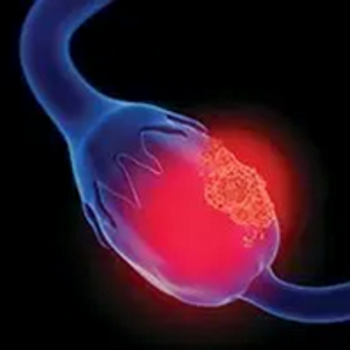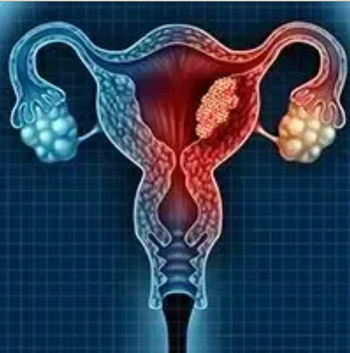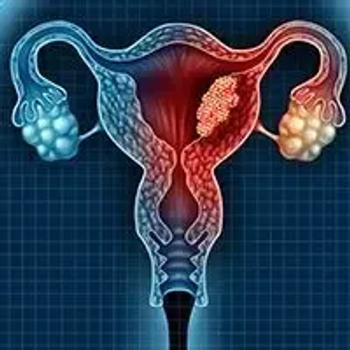
Brian M. Slomovitz, discusses the phase 3 ENGOT-en11/GOG-3053/KEYNOTE-B21 trial.

Your AI-Trained Oncology Knowledge Connection!


Brian M. Slomovitz, discusses the phase 3 ENGOT-en11/GOG-3053/KEYNOTE-B21 trial.

Ursula A. Matulonis, MD, discusses the results of the phase 3 SORAYA trial in platinum-resistant ovarian cancer.

Oliva Lara, MD, discusses the connection between molecular differences and disparities in cancer care in uterine serous carcinomas, as examined in a retrospective cohort study.

When maintenance niraparib was administered at an individualized starting dose, it resulted in a statistically significant and clinically meaningful improvement in progression-free survival vs placebo in patients with newly diagnosed ovarian cancer, irrespective of biomarker status.

Maintenance selinexor monotherapy was found to improve progression-free survival over placebo in patients with advanced or recurrent endometrial cancer.

The use of intraperitoneal carboplatin with paclitaxel improved progression-free survival, but not overall survival, vs intravenous chemotherapy in patients with epithelial ovarian, fallopian tube, or primary peritoneal cancer.

Mirvetuximab soravtansine was found to produce clinically meaningful antitumor activity with acceptable safety and tolerability in patients with platinum-resistant ovarian cancer and high folate receptor–alpha (FRα) expression.

The combination of nemvaleukin alpha and pembrolizumab led to encouraging clinical activity in patients with pretreated ovarian cancer who are resistant to platinum-based chemotherapy.

Atezolizumab given as an immune primer or concurrently with extended field chemoradiation demonstrated favorable progression-free survival and few dose-limiting toxicities, with evidence of T-cell clonal expansion in the tumors and peripheral blood of patients with locally advanced, node-positive cervical cancer.

Neoadjuvant niraparib induced strong results for patients with BRCA-mutant, homologous repair deficient–positive advanced resectable ovarian cancer.

Niraparib in combination with bevacizumab was efficacious following 1 line of platinum-based chemotherapy among patients with newly diagnosed advanced ovarian cancer, regardless of biomarker status.

Intravenous chemotherapy plus bevacizumab did not demonstrate differences in progression-free and overall survival compared with intraperitoneal chemotherapy plus bevacizumab in patients with advanced ovarian cancer with no macroscopic disease.

Single-agent olaparib generated similar overall survival compared with non-platinum chemotherapy in heavily pretreated patients with platinum-sensitive, relapsed ovarian cancer with BRCA mutations, according to the final analysis of the phase 3 SOLO3 trial.

Patient-reported outcome data support a favorable benefit/risk profile for the combination of pembrolizumab plus chemotherapy, with or without bevacizumab, in patients with persistent, recurrent, or metastatic cervical cancer.

Mae Zakhour, MD, discusses the utilization of tisotumab vedotin-tftv in cervical cancer.

Marina Frimer, MD, FACOG, FACS, discusses the exploration of maintenance with niraparib in a phase 2 trial in patients with advanced or platinum-sensitive recurrent uterine serious carcinoma

Patients with platinum-sensitive relapsed ovarian cancer without a germline BRCA1 and/or BRCA2 mutation treated with maintenance olaparib who achieved long-term progression-free survival more often had homologous recombination deficiency-positive tumors compared with those who experienced a short-term PFS.

Maintenance therapy with olaparib will be examined in patients with BRCA1/2 wild-type advanced ovarian cancer who responded to first-line, platinum-based chemotherapy in the phase 3 MONO-OLA1 trial.

Oregovomab, an investigational monoclonal antibody with promising phase 2 data, is being tested in combination with paclitaxel for patients with advanced epithelial ovarian cancer in the phase 3 FLORA-5 trial.

The addition of ociperlimab to tislelizumab is under investigation in the phase 2 AdvanTIG-202 trial in patients with previously treated recurrent or metastatic cervical cancer.

Chinese investigators have launched CC-ANNIE, a phase 2 trial exploring anlotinib plus sintilimab for women with recurrent platinum-resistant ovarian clear cell carcinoma.

The durable antitumor activity of pembrolizumab and the clinically beneficial outcomes demonstrated with both adjuvant chemotherapy and adjuvant chemoradiotherapy have provided investigators with the foundation to assess the 2 approaches in combination in a phase 3 study.

Patients with recurrent ovarian cancer who received PARP inhibitor maintenance treatment in the second-line setting experienced a longer time to next treatment and overall survival compared with those who were just under active surveillance.

The combination of mirvetuximab soravtansine and rucaparib was found to be well tolerated, with encouraging activity reported in heavily pretreated patients with endometrial, ovarian, fallopian tube, or primary peritoneal cancer.

The addition of farletuzumab to carboplatin plus paclitaxel or carboplatin plus pegylated liposomal doxorubicin did not demonstrate superiority over placebo plus chemotherapy in patients with platinum-sensitive recurrent ovarian cancer who are in their first relapse and have low cancer antigen-125 levels.

The exploration of mirvetuximab soravtansine as a potentially efficacious treatment in patients with advanced, high-grade, platinum-resistant epithelial ovarian, primary peritoneal, or fallopian tube cancers with high folate receptor–alpha expression continues with the ongoing, single-arm, phase 3 SORAYA trial.

Dostarlimab demonstrated durable antitumor activity in patients with mismatch repair deficient and MMR proficient endometrial cancer, regardless of investigator assessment or blinded independent central review and immune-related RECIST or RECIST v1.1 criteria.

The GAS6/AXL inhibitor AVB-500, when combined with paclitaxel, elicited clinical benefit with favorable tolerability in patients with platinum-resistant ovarian cancer, according to data from a phase 1b study.

Olaparib, when used in patients with platinum-sensitive relapsed ovarian cancer who had a known BRCA mutation and homologous recombination deficiency status, demonstrated adverse effects that proved to be consistent with the established safety profile of the PARP inhibitor.

Although the combination of olaparib and cediranib showcased modest efficacy over cediranib alone in patients with recurrent, metastatic or persistent endometrial cancer, the difference was not statistically significant.